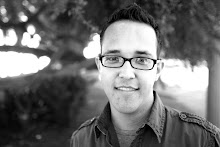Recently, I've been reading The God Delusion by Richard Dawkins. The stated purpose of the book is to turn every reader into an atheist, so it is certainly making for an interesting read. While I'm not particularly convinced by any of his arguments so far (they keep devolving into rhetoric), they have brought up an interesting dilemma for me to chew on--the problem of perception.
In the book, Dawkins suggests that religion should be held to the same high standards as science. Religion, he believes, should be investigated as thoroughly and critically as any other discipline, rather than being given a get-out-of-jail-free card as is often the case. Dawkins harps on religion's inferiority to science, often sloughing it off as "superstition." While I have no intention of engaging Dawkins on this issue, I will use it as a jumping-off point. That distinction between science and superstition, which may be very clear to him, does not seem clear at all to me. I'm not sure that separating the two as qualitatively different is possible.
I think the main difference between science and superstition is the data that support them. Science is based on objective facts, precise experimentation, and logical reasoning. In science, everything is tested, retested, interpreted, retested again, reinterpreted, and then retested a few more times. Scientific facts are experimentally proven and create an ever-more exact picture of our universe. Superstition, however, is based on subjective experience and patchwork attempts to explain our lives. Superstitious truths are believed without evidence and in spite of any contradictions. There is a clear-cut difference between science and superstition, right?
I'm not so sure. Science is not always as "hard" as it's made out to be. Just because something is called "scientific" that doesn't mean that it is true. By it's very nature, science is based on observations and estimates. In order to test something, it must be observable (or else we wouldn't see anything to test) and it must be measurable (or else it wouldn't be much of a test at all).
Observation itself creates problems--observing a phenomenon means that we are interacting with it and potentially interfering with it. By watching something, we run the risk of somehow influencing its outcome. This "observer effect" can be minimized, but as long as we are observing something we are basically getting in the way. Measurement is also a problem because it is impossible to be exact. For example, if I hold my hand at arms-length and measure my thumbnail with a ruler, I see that my thumbnail is 1/2 inch wide. If I take a closer look, it turns out that it is actually 5/8 inch wide. But if I were able to examine it under microscope with a more precise ruler, it may actually turn out to be 37/64 inch wide. The farther you zoom in, the more precisely you can measure (assuming you have a tool that is exact enough). But there are limits to how close we can get. At some point, every measurement becomes an approximation.
What all of that means is that we are limited by the fact that we cannot know anything perfectly, absolutely, and without interference. To some extent we are always guessing. We are perpetually bound by our perception. Granted, the degree of our uncertainty varies depending on the subject. We can be more precisely certain about the interactions of atoms in a combustion reaction than we can be about the nature of God--but we still cannot know everything about either one.
I guess what this all boils down to is subjectivity. Because we observe and interpret the world around us, everything is warped by the lens of our perception. Once something passes through that lens and into our minds, there is no way for us to verify with certainty what it is like on the outside. In our human experience, everything is tainted by our finitude. There really is no way to tell the difference between "empirical" science and "fairytale" superstition.
So even if there is a qualitative difference between science and superstition, as far as we are concerned, they are one in the same.
Thursday, June 12, 2008
Subscribe to:
Post Comments (Atom)


It sure seems as though God is very interested in remaining somewhat elusive. Faith appears to be a very precious thing to him, even though we surely assume that his divine initiative always precedes us (yes, I assume this to be the case, and I don't pretend to suggest that this is actually the case). The more willing I become to accept his mysteriousness and ambiguity, coupled with what I would surmise to be quite a bit of convincing evidence in its many forms, the more I have a sense that he is truly with and in me, even to the degree that I am willing to become more committed to him, though I find that I can not transcend my own personal view of the world (that is, what I contribute to the truth-finding process as a subjective human being).
ReplyDelete